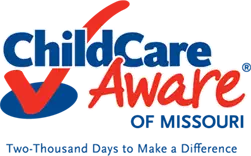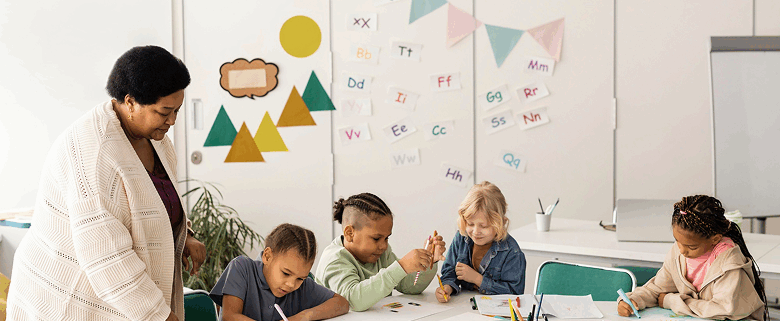Missouri Programs That Help Kids During Family Crisis or Homelessness
When families face unexpected hardships like from job loss, eviction, illness or natural disaster their children are the main part who experience the ripple effects most deeply. For kids, these moments of instability can interrupt schooling, affect mental health and create feelings of fear and confusion. That’s why having the right support can bring in changes as they support.
Across Missouri, a network of thoughtful programs exists to make sure children still have access to education, health care and emotional safety even when life at home becomes uncertain. These are not just emergency shelters or food banks. They are proactive solutions designed to catch children before they fall through the cracks.
Let’s take a closer look at how Missouri is helping families during times of crisis and how these supports can protect a child’s well-being.
Stability Through Consistent Education
One of the first challenges families face during the period of homelessness is school disruption or the disconnection. Fortunately, Missouri follows the McKinney-Vento Act, a federal law that ensures homeless children can remain in their school of origin even if they move or temporarily live outside the district. Sounds great! Isn’t it?
Thanks to such an act. Now, the children can:
- Stay enrolled in their original school without having to provide documents like proof of residence.
- Receive free transportation to school if they’re living in shelters or temporary housing.
- Get access to tutoring and additional academic support.
Local liaisons in each school district are trained to help identify students experiencing homelessness and make sure they continue learning without unnecessary barriers.
Child Care and Early Learning Support
Crisis does not wait until a child is old enough for school. Infants, toddlers and preschool-aged children need just as much stability if not more during transitional times.
In Missouri, child care programs provide priority access to families in crisis through partnerships with shelters, family support centers and health clinics. Some innovative supports includes,
- Drop-in child care for emergency cases or unpredictable schedules.
- Temporary subsidies or vouchers to reduce child care costs for families suddenly displaced.
- Mobile care units that bring early learning environments to shelters and transitional housing centers.
This helps parents focus on resolving the crisis, whether job hunting, securing permanent housing or accessing mental health services knowing their children are safe and supported.
Access to Physical and Mental Health Services
More than shelter, the crisis impacts health especially for children.
In response, Missouri programs emphasize integrated care by connecting families to,
- Federally Qualified Health Centers (FQHCs) that provide low-cost medical care regardless of insurance status.
- Mobile health clinics that serve communities with limited access to transportation.
- School-based health programs where children can receive checkups, vaccinations and mental health counseling during the school day.
In particular, Missouri schools and community partners are expanding access to child psychologists and trauma informed care. This makes sure that children can process what’s happening around them in a safe, age-appropriate way with professionals trained to spot warning signs.
Family Navigation and Crisis Counseling
To manage the feelings of tension during a crisis, family navigators and crisis intervention teams play such an important role. These specialists help families map out what’s next from securing benefits to finding emergency shelter.
Missouri-based family support organizations provide,
- Case management services to organize appointments, paperwork, and resources.
- Parenting support groups and workshops that provide emotional relief and practical tips.
- Hotlines and 24/7 crisis response lines for immediate guidance and connection to services.
This type of help may not always make headlines, but it provides the glue holding families together when everything else feels like it’s falling apart.
Innovation Through Community Collaboration
One of Missouri’s most forward-thinking strategies is how it connects public systems with local nonprofits, schools, and child care providers. Collaboration makes sure that resources aren’t duplicated, families don’t have to “start over” at every new agency and kids don’t get lost in the shuffle.
Here’s how that plays out in practice,
- Shelters are coordinating with child care programs to ensure placement availability.
- Faith-based organizations offering weekend food packs that schools discreetly send home.
Preparing for the Unexpected
Many families in Missouri never imagined they’d face a crisis. That’s why prevention and preparedness have become key areas of focus.
Some initiatives now include:
- Parent education on emergency planning during pediatric visits or school meetings.
- Pre-crisis checklists available through family resource centers helping parents gather key documents and emergency contacts.
- Disaster readiness training for child care providers, so children are safe even during local emergencies like floods or tornadoes.
Building resilience starts before a crisis hits. By helping families prepare early, Missouri is empowering parents and protecting children no matter what the future holds.
Conclusion
Family crises may be unpredictable, but a child’s access to care, education, and emotional support shouldn’t be. Through thoughtful collaboration, dedicated school and child care programs that focus on mental and physical health will help for kids in crisis Missouri families.
Missouri is building a system that helps kids stay safe, feel secure and continue to grow even during life’s toughest moments. For families navigating today, Child Care Aware of Missouri remains a trusted partner helping to connect the dots between urgent needs and lasting solutions.




